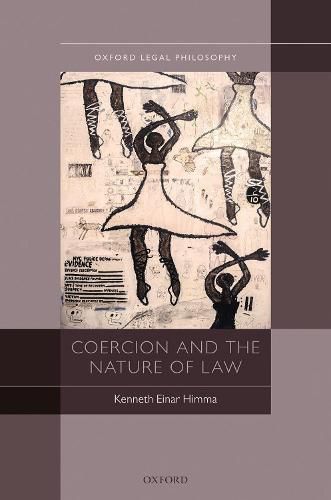Readings Newsletter
Become a Readings Member to make your shopping experience even easier.
Sign in or sign up for free!
You’re not far away from qualifying for FREE standard shipping within Australia
You’ve qualified for FREE standard shipping within Australia
The cart is loading…






The Coercion Thesis has been a subject of longstanding debate, but legal positivist scholarship over the last several decades has concluded that coercion is not necessary for law. Coercion and the Nature of Law is concerned with reviving the Coercion Thesis, presenting a strong case for the inherently coercive nature of legal regulation, and arguing that anything properly characterized as a legal system must back legal norms prohibiting breaches of the peace with the threat of a coercive sanction. Himma presents the argument that people are self-interested beings who must compete in a world of scarcity for everything they need to survive and thrive. The need to compete for resources naturally leads to conflict that can breach the peace, and threatens the ability to live together in a community and reap the social benefits of cooperation. Law only functions as a system if it can maintain the peace enough for community to continue, and thus systems of law cannot succeed in doing anything that we want systems of law to do unless they back laws prohibiting violent assaults on persons or property with the threat of punishment; without sanctions, we would descend into something resembling a condition of war-of-all-against-all. We adopt coercive systems of regulation precisely to avoid having to live under such conditions.The book is divided into three parts: (1) a prima facie logical-empirical case for the Coercion Thesis, (2) a study of the society of angels and international law counterexamples, and why they do not refute the thesis, and (3) an analysis of how law guides behaviour and the implications of the Coercion Thesis on reasons for action.Going against the current conventional wisdom in legal philosophy, Himma makes a systematic defence of the Coercion Thesis arguing that coercion or enforcement mechanisms are not only a necessary feature of legal systems, but a conceptually necessary feature of legal systems.
$9.00 standard shipping within Australia
FREE standard shipping within Australia for orders over $100.00
Express & International shipping calculated at checkout
The Coercion Thesis has been a subject of longstanding debate, but legal positivist scholarship over the last several decades has concluded that coercion is not necessary for law. Coercion and the Nature of Law is concerned with reviving the Coercion Thesis, presenting a strong case for the inherently coercive nature of legal regulation, and arguing that anything properly characterized as a legal system must back legal norms prohibiting breaches of the peace with the threat of a coercive sanction. Himma presents the argument that people are self-interested beings who must compete in a world of scarcity for everything they need to survive and thrive. The need to compete for resources naturally leads to conflict that can breach the peace, and threatens the ability to live together in a community and reap the social benefits of cooperation. Law only functions as a system if it can maintain the peace enough for community to continue, and thus systems of law cannot succeed in doing anything that we want systems of law to do unless they back laws prohibiting violent assaults on persons or property with the threat of punishment; without sanctions, we would descend into something resembling a condition of war-of-all-against-all. We adopt coercive systems of regulation precisely to avoid having to live under such conditions.The book is divided into three parts: (1) a prima facie logical-empirical case for the Coercion Thesis, (2) a study of the society of angels and international law counterexamples, and why they do not refute the thesis, and (3) an analysis of how law guides behaviour and the implications of the Coercion Thesis on reasons for action.Going against the current conventional wisdom in legal philosophy, Himma makes a systematic defence of the Coercion Thesis arguing that coercion or enforcement mechanisms are not only a necessary feature of legal systems, but a conceptually necessary feature of legal systems.